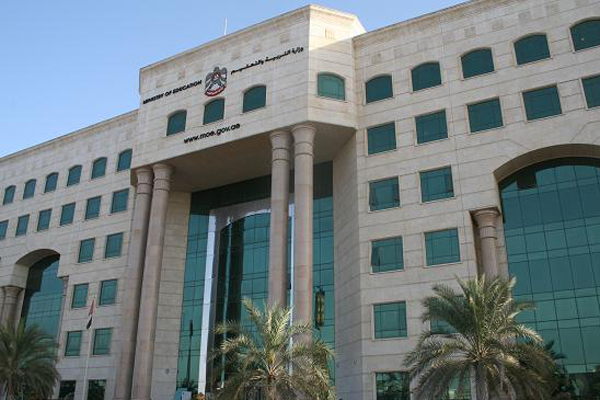
UAE Education Ministry unveils new organisational structure
DUBAI, July 7, 2015
UAE’s Ministry of Education has endorsed and revealed details of its new organisational structure, aimed at making education a top priority within the country’s agenda for strategic and ambitious development.
Hussain Al Hammadi, UAE Minister of Education, noted that the reliance came to represent a strong furtherance added to the unlimited support of the enormous potential. He further commended the unlimited support offered by the country’s leadership for the Ministry to impart education of the highest quality and excellence to Emiratis.
The ministry continues to take a qualitative leap in education which will enable the nation to progress and lead in accordance with the foundation laid down by the late Sheikh Zayed bin Sultan Al Nahyan.
He said that the ministry continues to march forward under the guidance and patronage of Sheikh Khalifa bin Zayed Al Nahyan, President of UAE and Ruler of Abu Dhabi; Sheikh Mohammed bin Rashid Al Maktoum, UAE Vice President and Prime Minister and Ruler of Dubai; the Supreme Council Members and Rulers of the Emirates; and Sheikh Mohammed bin Zayed Al Nahyan, Crown Prince of Abu Dhabi and Deputy Supreme Commander of the UAE Armed Forces.
He stated that the ministry inspired its organisational structure from the new strategic requirements, principles and foundations of governance, the concepts of excellence, and methods for maximum performance, all of which have laid the bases of our successful government, and from the angel of derived building structure and the drafting of modern thought based on creativity and innovation and smart methods, that our Federal institutions aims to achieve its objectives.
Al Hammadi pointed out other important requirements that have prompted the development of the new structure, such as the contents of the Ministry’s new strategies, projects and programs.
He noted the need for the extension of the decentralisation of planning, monitoring and evaluation processes to avoid any possible duplication of powers or overlapping of roles.
Other factors include optimising human capital investments; developing appropriate competencies; infusing new skills to support existing expertise and strengthen ongoing efforts; providing opportunities for developing strong leadership skills in the new generation so that it is capable of assuming any duties or responsibilities; and extending the benefits of Emirati in the educational field.
The new structure has taken into account the development that took place at the beginning of the school year which have paved the way for its adoption, said Al Hammadi.
The new organisational structure will benefit educational leaders in various departments of the school districts, as they are given roles that differ from their traditional routines that take a lot of effort and time to perform and master.
At the same time, school sector managers and domain managers, and the formation of councils, most notably school leadership council, and the advisory board of teachers, and other things have been pre-arranged.
The new structure will be the founding stage of the production and achievement based on collaborative work and team spirit, according to the order titled “responsibility and commitment to provide exceptional service for quality education”.
It will streamline policies, planning, operations and follow-ups and at the same time achieve quality assurance and strategic linkages.
It will also contribute towards the ministry’s institutional capacity building, especially in terms of the development of curriculum and the calendar of examinations, training and professional programs, and detailed educational process, based on its high operating efficiency which will be felt throughout the various levels of the education system.
Al Hammadi noted that the new shift opens up a wide area for Education Zones administrations to focus on the future planning, inspection and provision of community-based services, and the building of close relations with the departments and related institutions of local government.
It will also play a key role in the community through coordination and planning for the development of educational services, and far away from the burdens of the follow-up of schools that may affects its new roles that the ministry depends on in achieving development goals.
The institutional transition witnessed by the Ministry is the result of the exceptional efforts exerted by the in-house specialised teams, leading specialists from the field of education, and experts from prestigious local educational and specialised institutions.
In addition, he said that the concerned authorities played a significant role in the qualitative transition in education through their constructive involvement.
He emphasised that the process of transition to the new structure, which is the product of a genuine strategic partnership, is keen on documenting it with community organisations and the parties of learning process and those concerned with educational structure comes.
Consultations were based on the UAE’s vision and directions of the government along with the systems, controls and mechanisms established and approved.
The discussions also considered reality of education and the requirements for improvement at this stage along with the strong public interest. - TradeArabia News Service







